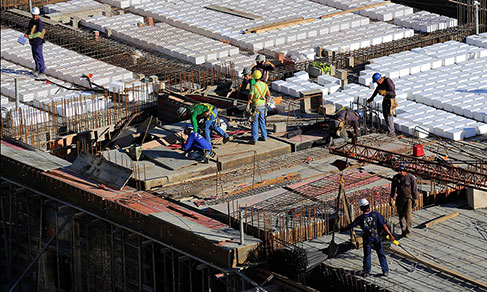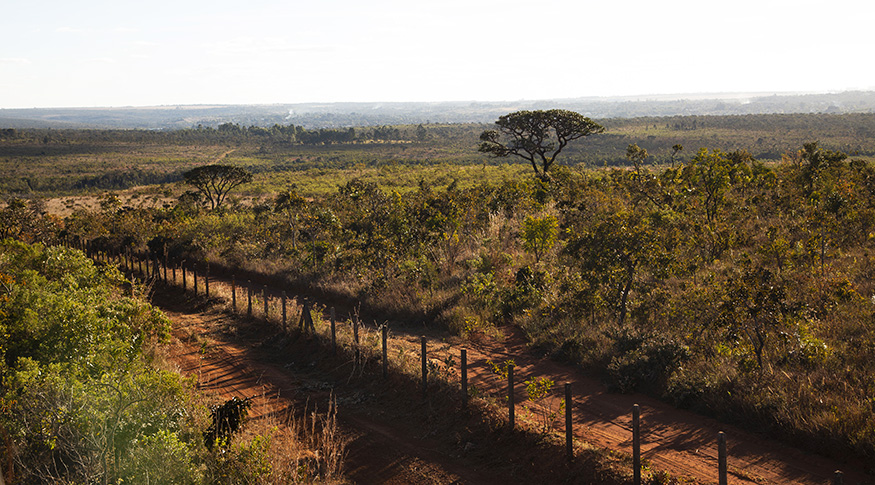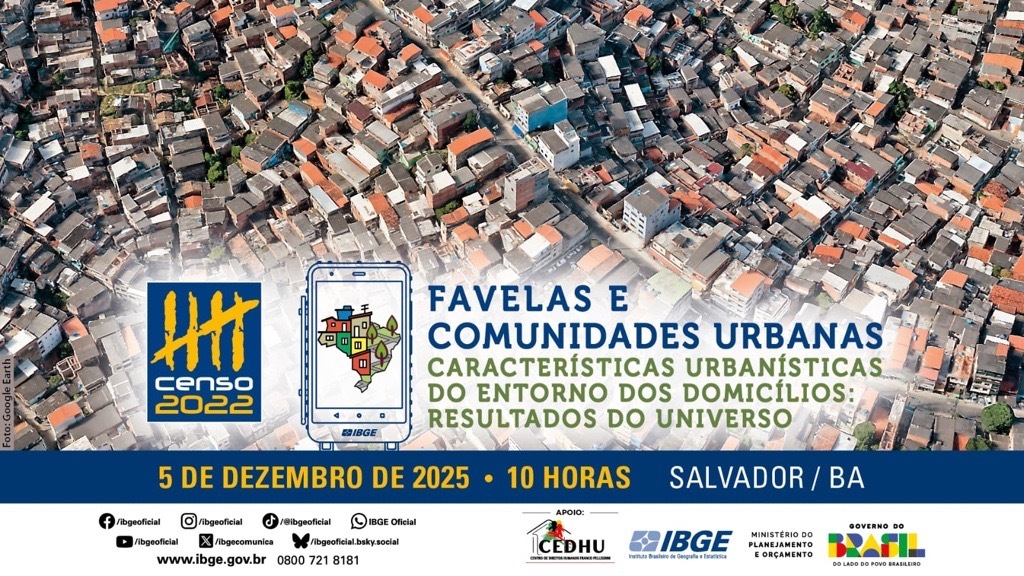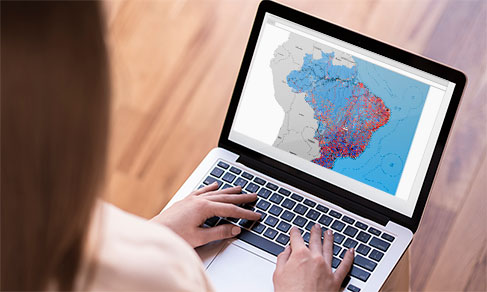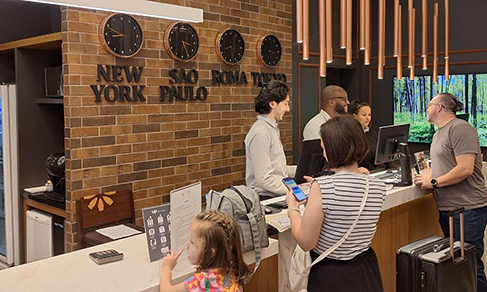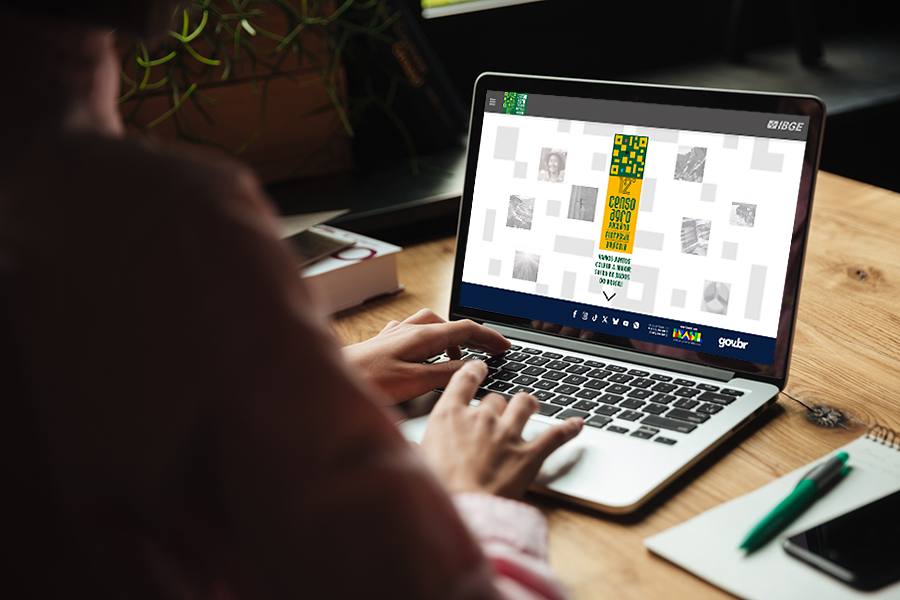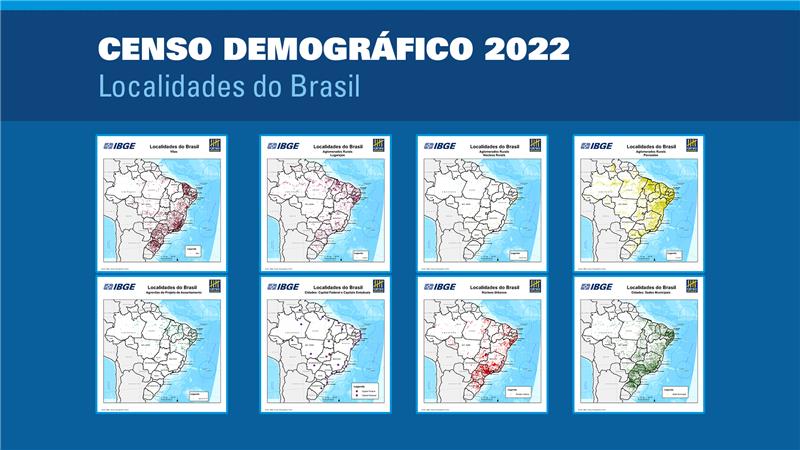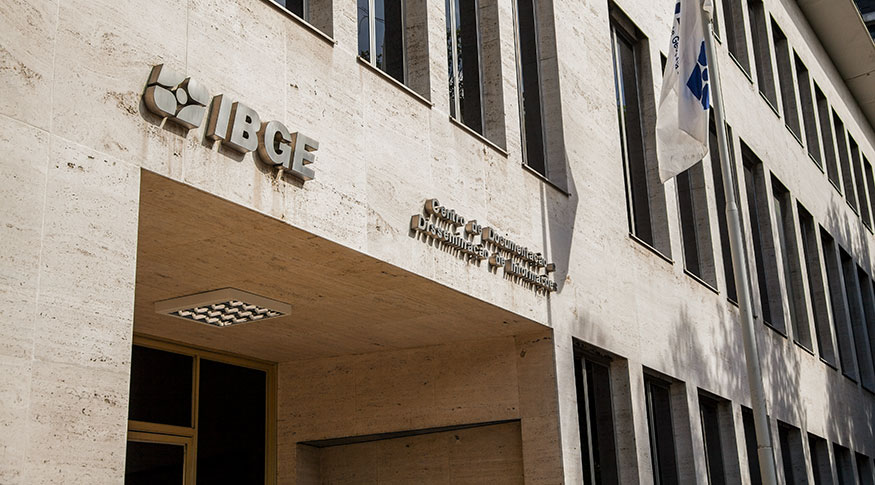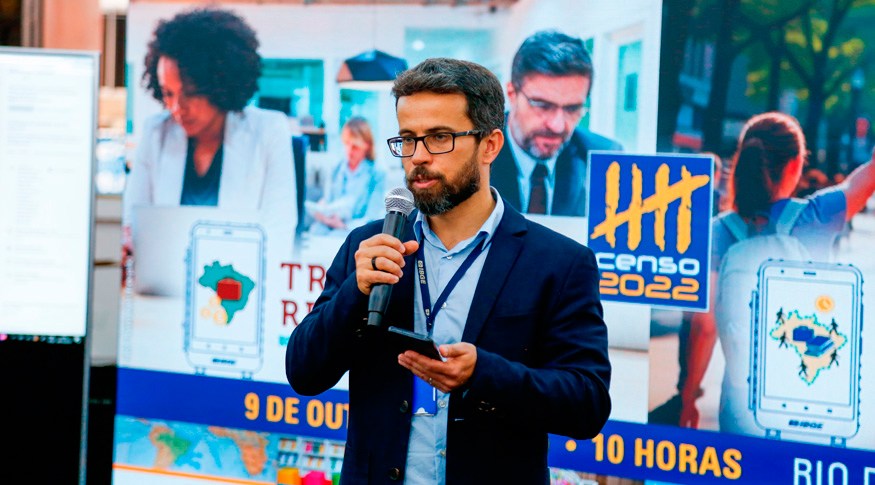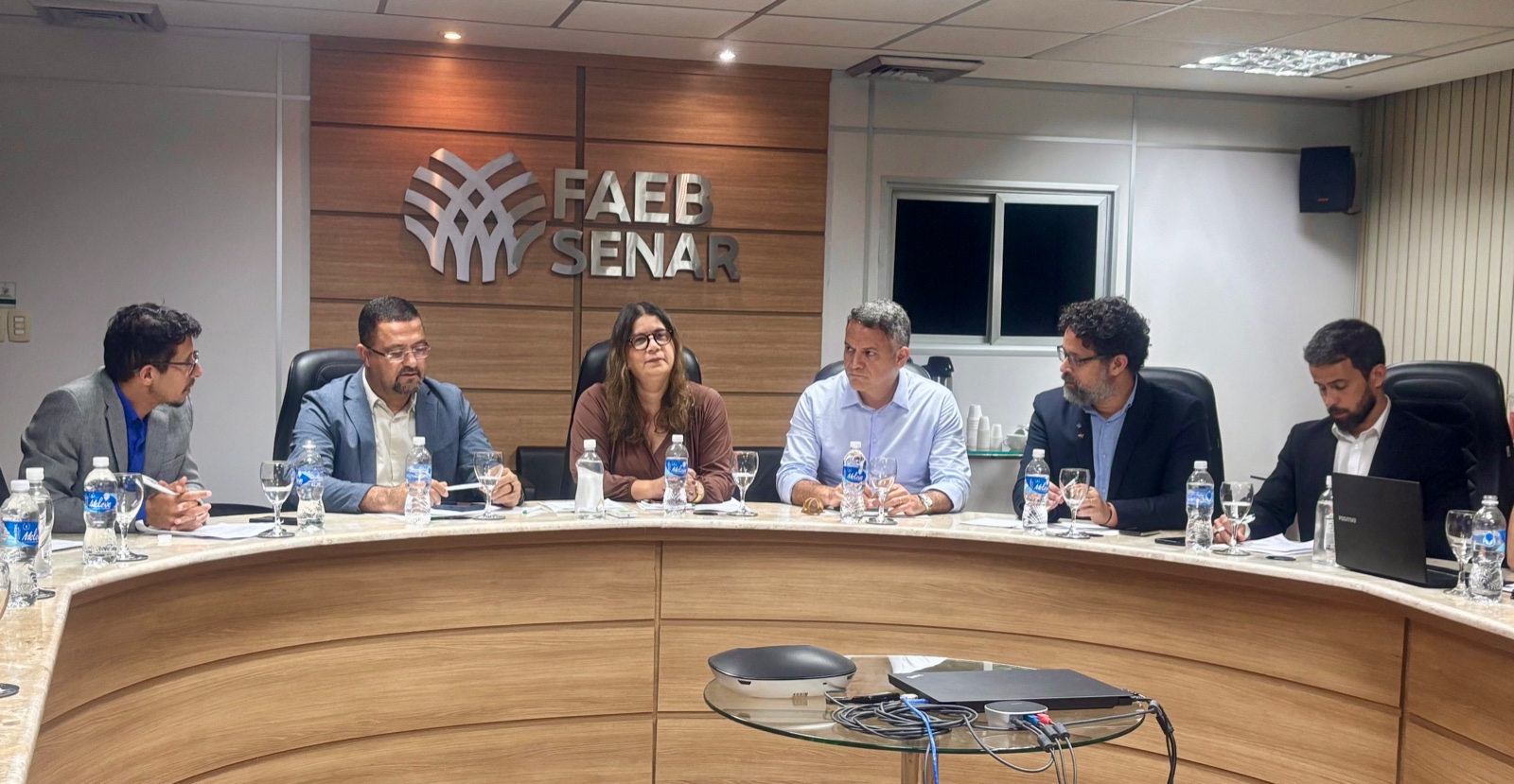2022 Census
Paquetá Island (Rio) holds IBGE's first test for the 2022 Brazilian Census
September 03, 2021 10h00 AM | Last Updated: September 08, 2021 12h42 PM
Highlights
- IBGE carries out the first collection test for the 2022 Population Census in Brazil.
- The chosen location, Paquetá Island (Ilha de Paquetá), in Guanabara Bay (RJ), has more than 85% of its population fully vaccinated against Covid-19.
- In addition to face-to-face interviews, alternative telephone and internet collection approaches will take place.
- Among the targets of the test are the familiarization with the census operation, testing of equipment and systems, and mobilization of teams and dissemination.
- Door-to-door census will take place between the 6th and 24th of September.
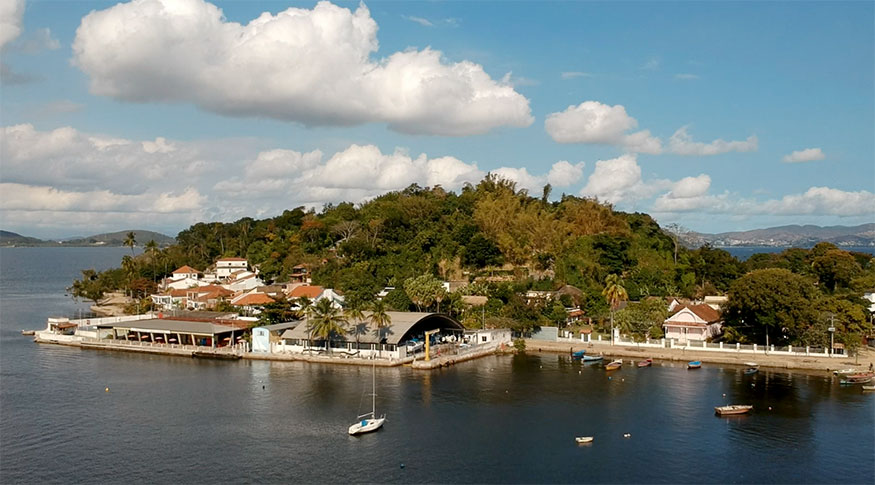
The first field test for the 2022 Population Census in Brazil, after the start of the Covid-19 pandemic, began on September 1st, with the Urbanistic Survey of Surroundings, and goes on until October 30th, on Paquetá Island (Ilha de Paquetá), located in Guanabara Bay (Baía de Guanabara – Rio de Janeiro). The door-to-door enumeration survey will start next Monday (6) and will go on until September 24th. There will be 16 IBGE technicians directly involved in the collection service, 12 of them acting as enumerators.
One hour away from downtown Rio de Janeiro, with just over 1.2 km² and about 40 streets, the island – officially a neighborhood of the city of Rio de Janeiro – had almost 1,300 households and 3,381 residents according to the 2010 Census.
“The test in Paquetá is a starting point for a series of other tests that prepare the start of the Census collection next year, on June 1, 2022. We would like to thank the support from the Municipal Secretary of Health of the city of Rio and the warm welcome of the Paquetá population”, highlights the president of the IBGE, Mr. Eduardo Rios Neto.
Data from the Municipality of Rio indicate that more than 85% of the adult population of Paquetá have already received the two doses of the Covid-19 vaccine, which guarantees more safety both for the IBGE teams and for the island residents. Even so, the professionals involved in data collection will wear masks and face shields, respecting the safety protocols against the pandemic.
For the IBGE Director of Surveys, Mr. Cimar Azeredo, events like this are fundamental for the Institute to guarantee a safe and quality census operation. “We need to fly the flag of the Census, given the importance of its information for the Brazilian society. We are facing a 'new normal' and it will be IBGE's first experience running a census operation in the field after the 2019 Census Dress Rehearsal”, he says.
“Paquetá is the ideal place for our test, due to the vaccination status of its residents and its proximity to IBGE’s headquarters, which reduces operating costs”, explains the technical manager of the Census, Mr. Luciano Duarte. Among the main objectives of the test, he highlights the setting for the census operation nationwide and the mobilization of teams to carry out the Census.
Internet and telephone collection will also be tested
In the test to be carried out in Paquetá, alternative and complementary data collection approaches will be used: face-to-face, by telephone and on line. The three collection modes will be used in the census next year.
The operation in Rio de Janeiro will also be a way to test the systems and equipment that will be used in the census operation, such as the Mobile Collection Devices (DMCs, similar to a smartphone, which contains the electronic questionnaires), since some specifications and features were not yet tested in the field.
The training of professionals involved in the test took place throughout August.
“The test will be an opportunity for us to get acquainted with the census operation. As we are responsible for the operation in the field, we will strive to make Paquetá a reference for other State Branches”, claims the head of the IBGE State Branch in Rio, Mr. José Francisco Teixeira Carvalho.
The Urbanistic Survey of Surroundings, which precedes the Census itself and provides information on urban infrastructure, started being carried out on Wednesday (September 1) and will be finished by Friday (September 3). At this stage of the survey, enumerators list items covering public lighting, identification of public spaces, road paving, existence of sidewalks, bike paths, bus stops, as well as issues concerning urban accessibility and afforestation.
Mr. Claudio Stenner, IBGE Director of Geosciences, explains the importance of this initial stage: “It is essential that we know the context in which Brazilians' houses and apartments are located. The Urbanistic Survey of Household Surroundings provides detailed information on urban infrastructure. Together with the information from the Census questionnaire, it is possible to understand not only what Brazilians and their households are like, but also what the streets and neighborhoods where we live are like”.
The door-to-door census in Paquetá will start on the 6th of September and will end on the 24th of the same month. From then on, until October 1st, it will be the supervision period. The work ends with the Post-Enumeration Survey (PPE), to assess the coverage and quality of data collection for the census, which runs until October 30th.
The operation will also be useful for evaluating whether the test model can be used in other IBGE State Branches, in November. That same month, the IBGE will carry out a larger scale test in the municipality of Engenheiro Paulo de Frontin (RJ), in addition to visiting subnormal settlements and improvised homes in Nova Iguaçu (RJ) and in Indigenous and Quilombola territories in Angra dos Reis (RJ)
The first preparatory tests for the Census (for 2020, which was canceled because of the pandemic) began in 2018. At the end of 2019, the Census Dress Rehearsal was carried out in the field between September and November in the municipality of Poços de Caldas (MG) and, later on, occasionally, in other cities across the country. In those previous stages, the collection systems for the household questionnaire, the surrounding questionnaire, in addition to the census management, monitoring and control systems were evaluated. Indigenous and Quilombola groups were also approached.
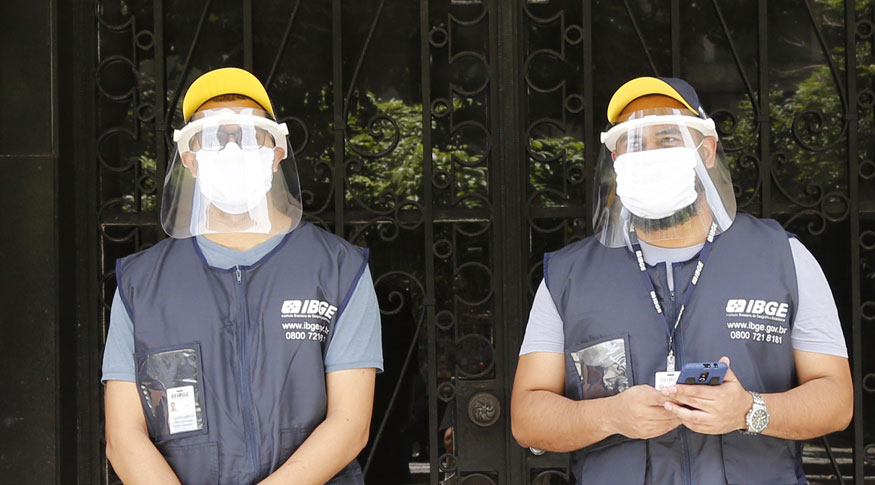
How to check IBGE enumerators' identity
The enumerators work in uniform, wearing a cap and vest with the IBGE logo. In the vest, there is also the identification badge, with a photo and identity number of the interviewer. They will be using a DMC, a device similar to a smartphone, to collect information. Residents can verify the identity of all IBGE interviewers on the website respondendo.ibge.gov.br or by calling 0800 721 8181, from 8:00 am to 8:00 pm, every day. As in all IBGE surveys, the information provided by residents to the enumerators is confidential and secrecy is guaranteed.



